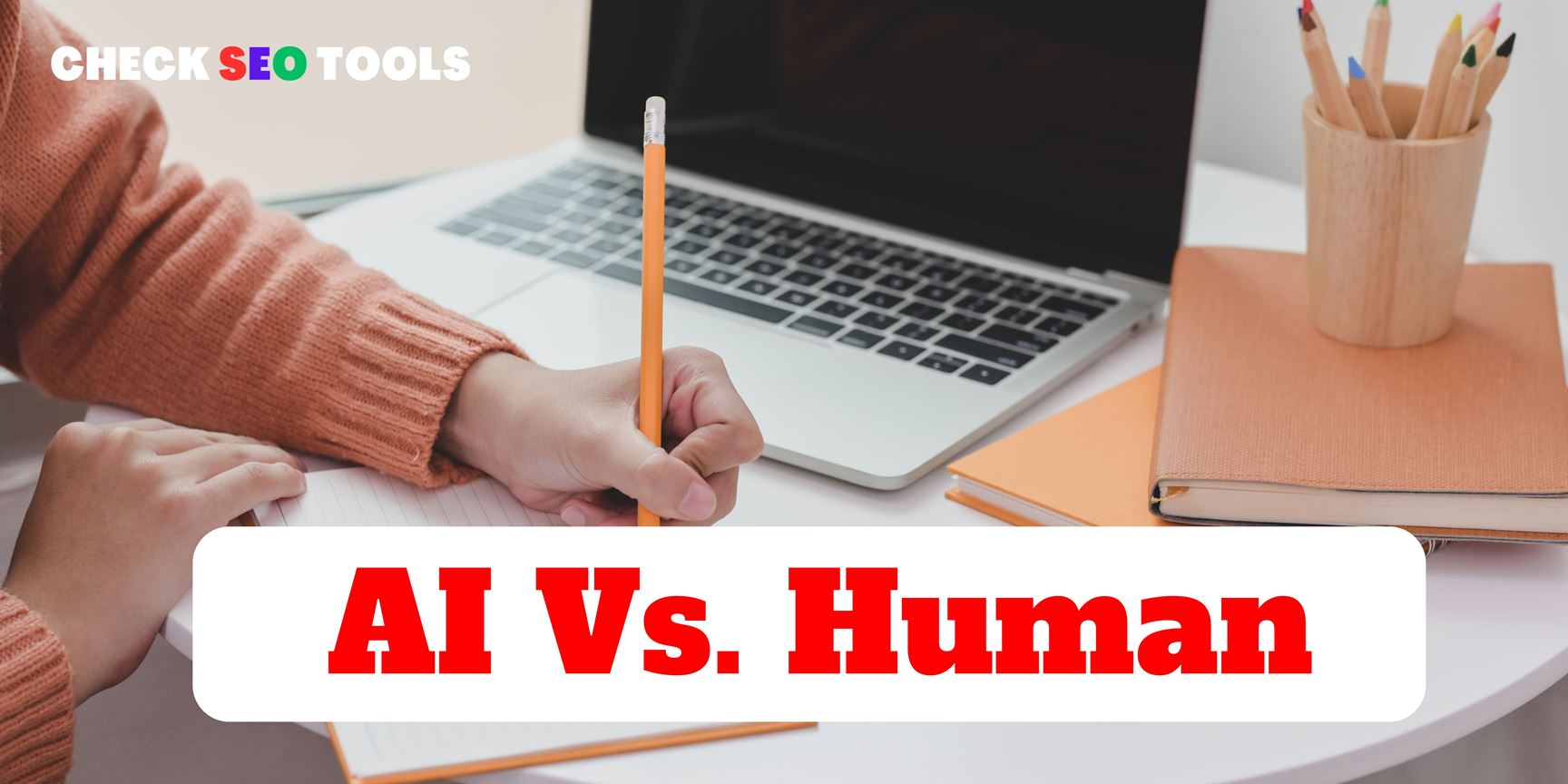
Human Vs. AI - Who Writes a High-Quality Content?
In the digital age, the battle between AI and human content writing has become a hot topic. Both have their strengths and weaknesses, but who truly writes high-quality content? Let's dive into this debate.
Understanding AI Content Writing
What is AI Content Writing?
AI content writing involves the use of artificial intelligence to generate written content. These AI systems analyze vast amounts of data and use algorithms to produce coherent text.
How AI Content Generators Work?
AI writing tools, like GPT-4, use machine learning to understand language patterns. They generate text by predicting the next word in a sentence, based on the input they receive.
Popular AI Writing Tools
Some well-known AI writing tools include OpenAI's GPT series, Jasper, and Copy.ai. These tools are popular for their ability to produce content quickly and efficiently.
Understanding Human Content Writing
The Human Touch in Content Creation
Human writers bring a unique touch to content creation. They infuse personality, creativity, and emotional depth into their writing, which AI often lacks.
Key Skills of a Human Content Writer
A skilled human writer possesses strong research abilities, creativity, adaptability, and a deep understanding of the audience's needs and preferences.
Advantages of AI Content Writing
Speed and Efficiency
AI can produce large volumes of content in a fraction of the time it takes a human writer, making it highly efficient.
Cost-Effectiveness
AI content generators can be more cost-effective, especially for businesses needing bulk content regularly.
Consistency in Tone and Style
AI tools maintain a consistent tone and style across all content, ensuring uniformity.
Advantages of Human Content Writing
Creativity and Originality
Human writers excel in creativity and originality, crafting unique and engaging content that stands out.
Emotional Connection
Humans can create an emotional connection with readers, making the content more relatable and impactful.
Adaptability and Nuance
Human writers can adapt their style and tone to fit different contexts and nuances, which AI struggles with.
Challenges of AI Content Writing
Lack of True Understanding
AI lacks true understanding and can produce content that feels shallow or generic.
Limited Creativity
While AI can mimic creativity, it doesn't genuinely create, often leading to less innovative content.
Potential for Errors
AI-generated content can sometimes contain errors or inaccuracies, requiring human oversight.
Challenges of Human Content Writing
Time-Consuming Process
Creating high-quality content takes time, which can be a disadvantage in fast-paced environments.
Higher Costs
Hiring skilled writers can be expensive, especially for small businesses.
Inconsistencies in Quality
Human writers may have off days, leading to inconsistencies in content quality.
Case Studies: AI vs. Human Content
Examples of Successful AI-Generated Content
Several companies use AI to generate product descriptions, news articles, and even creative writing with notable success.
Examples of Successful Human-Written Content
On the other hand, human writers have crafted iconic marketing campaigns, compelling blog posts, and engaging social media content.
SEO and Content Quality
How AI Handles SEO?
AI tools excel in optimizing content for SEO, using algorithms to identify and incorporate keywords effectively.
How Humans Handle SEO
Human writers can strategically place keywords and create naturally flowing, SEO-friendly content that resonates with readers.
User Engagement and Content Quality
AI's Impact on User Engagement
AI-generated content can maintain user engagement with its consistency but may lack depth.
Human Impact on User Engagement
Human-written content often leads to higher engagement due to its creativity and emotional appeal.
Ethical Considerations in AI Content Writing
Plagiarism Concerns
AI can unintentionally produce content that resembles existing works, raising plagiarism concerns.
Ethical Use of AI Tools
Using AI ethically involves ensuring transparency and originality in the generated content.
Future of Content Writing
Predictions for AI Advancements
AI is continually advancing, with future models expected to produce even more sophisticated and human-like content.
The Evolving Role of Human Writers
Despite AI's advancements, human writers will continue to play a crucial role in adding depth, creativity, and emotional resonance to content.
Hybrid Approaches
Combining AI and Human Efforts
Combining AI's efficiency with human creativity can result in high-quality, engaging content.
Best Practices for Hybrid Content Creation
Businesses can leverage AI for initial drafts and let human writers refine and perfect the content.
Conclusion
In conclusion, both AI and human writers have unique strengths and challenges. AI excels in speed, efficiency, and consistency, while human writers bring creativity, emotional depth, and adaptability. The best approach often involves a hybrid model, leveraging the strengths of both to create high-quality content.
Frequently Asked Questions (FAQs)
How do AI content generators work?
AI content generators use machine learning algorithms to analyze language patterns and produce coherent text based on input data.
Can AI replace human writers?
While AI can handle certain types of content efficiently, it lacks the creativity and emotional depth of human writers, making it unlikely to fully replace them.
What are the best AI writing tools?
Some of the top AI writing tools include OpenAI's GPT series, Jasper, and Copy.ai.
How can humans improve their writing?
Humans can improve their writing by continuously practicing, seeking feedback, reading extensively, and staying updated on industry trends.
What is the future of content writing?
The future of content writing is likely to involve a hybrid approach, combining the efficiency of AI with the creativity and emotional depth of human writers.
